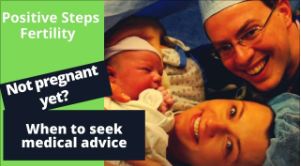 This highly covered study is well-meaning but flawed, and doesn’t apply to many women trying to understand their fertility.
This highly covered study is well-meaning but flawed, and doesn’t apply to many women trying to understand their fertility.
We all agree: a woman and her fertility is more than just her age and her eggs. A recent study discussing this was published in the Journal of the American Medical Association (JAMA) and recognized on CNN and elsewhere, and it has gotten a lot of attention. Some misinterpreted this study to suggest testing the ovaries is irrelevant in women who have trouble getting pregnant. The reality is:
- This is not new
- This can be misleading
- The ovaries still matter.
Let’s look at whether eggs (evaluated in ovarian reserve testing) matter for the fertility journey through an analogy. If you had a car and wanted to know whether it would get you to your destination, you would hope it had a motor. Most cars going the distance have an engine, and you’d be shocked if one without a motor went anywhere. If you randomly chose cars from a dealership and compared them to cars at a mechanic’s waiting to be repaired, the likelihood of the engine working is different.
This is how the research published in JAMA is different from what many think it said. The research looked at women without infertility (less than three months of trying to get pregnant) and without known risk factors (PCOS, endometriosis, etc.). So effectively, they’d never been on the infertility road before. That’s very different from a person trying for over a year or longer, when they’d been on the journey for a while and weren’t sure why they hadn’t reached their destination.
Core points on the wrongheaded study of ovaries and fertility
- This is not new. Even for women with subfertility, more than 10 years ago we realized it was hard for ovarian reserve tests to truly predict pregnancy. Anti-Müllerian hormone (AMH) was among the best of these, but many factors go into fertility. After all, being age 25 won’t fix blocked fallopian tubes, no matter how good the eggs are. Using a single test when many things matter increases the likelihood something is missed.
- This can be misleading. A study finding that ovarian reserve tests aren’t great at predicting who will get pregnant in women that have never tried to get pregnant doesn’t necessarily apply to women that have been trying for a long time. Some people, including doctors that weren’t part of this research, are using this study to compare apples and oranges.
- The ovaries still matter. Despite how complicated searching Dr. Google makes it seem, the simple version is that much of fertility comes down to whether a guy has sperm, a woman has eggs, whether they can meet in the fallopian tubes, and whether the uterus is likely to sustain a pregnancy. Our patent pending fertility test, the Parryscope™ technique, can be combined with ultrasound for looking at these core factors for fertility, including the ovaries. And we can get quick, gentle and accurate answers for why fertility has been taking a while and what can be done about it.
On a final note, the authors of the JAMA paper as well as some of the commentators include several people that I know personally and respect. I think they’ve done valuable research that articulately answers important questions. However, these questions don’t apply to most of the patients I care for and may not apply to you.
If you want to understand what is going on with your body and why the fertility journey has been longer than you feel it should be, get answers from a specialist who can understand what research really means and whether it applies to you.
Schedule an appointment for Parryscope fertility testing, or call 888-4PR-SCPE (477-7273) to ask Dr. Parry a question.




